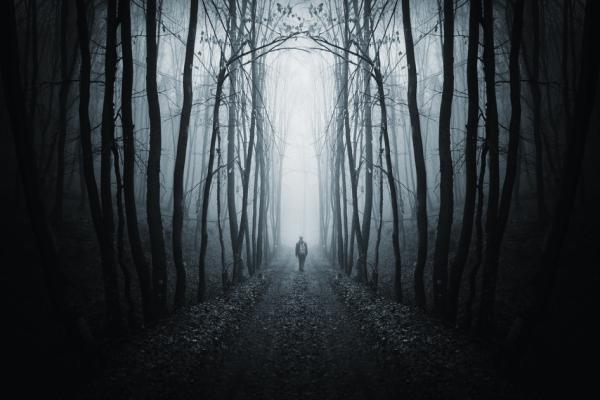When I bought eyeglasses for the first time, I suddenly and dramatically discovered the clarity I had been missing. But I also had to be careful walking down stairs, as I had a hard time judging depth. I got headaches from the intensity of my newfound vision. I had to adjust to a new way of seeing.
Recently, I invited Albert Rizzi to co-preach a sermon with me. He had unexpectedly lost his sight in 2006 at the age of 41. In 2009, he launched a non-profit company advocating that all blind persons be entitled to acceptance and freedom from discrimination. He works to develop accessible computer accounting software to help reduce the national 60 percent unemployment rate among the blind.
Rizzi’s blindness became a national news story in 2013 when he and his guide dog, Doxy (short for doxology), were ejected from an airplane because he could not get Doxy to crawl under the seat for takeoff. They had been on the tarmac for nearly two hours, and the dog had become restless. In protest of Albert and Doxy’s eviction, the 45 other passengers joined Rizzi and Doxy in departing the plane and the flight was cancelled.
Rizzi claims his ability to see actually became more focused after blindness. During our shared sermon, I mentioned how Jesus encountered a blind man sitting by the roadside, begging and shouting, “Jesus, Son of David, have mercy on me!”
The Bible says those around the man, “sternly ordered him to be quiet.” That basically means they told him to shut up.
In our sermon, Rizzi said,
“I have often felt abandoned on the roadside just like the blind man. I felt unseen, untouchable and outcast. Since losing my eyesight I have been denied service, denied access to software programs and mobile apps, and denied my job as a school principal and kindergarten teacher. I was unable to shop for food and, at times, even worship like everyone else.”
But Rizzi has come to believe that his blindness was actually a gift from God — although it’s a gift he had never wanted.
“The mysteries of faith are just that: mysteries. And they are not always so obvious that we can see them with our eyes open. Sometimes we need to close our eyes to see deeply and with intention,” he said.
You could draw a straight line connecting intentional blindness in the Bible to the intentional blindness of people who refuse to see such things as the symptoms of serious physical illness, a problem with gambling away the rent money, or a person refusing to see that they are no longer able to take care of themselves.
I replied to Rizzi,
“It seems to me that Jesus tried to show many things to people and they refused to see. We are just like them — our vision, prejudices, and ego can contort what we see into what we wish to see. We believe the mirage because it is more palatable.
Some things are too painful to look at. What are some of the realities about blindness that we, the sighted, refuse to see — and what have you learned from them?”
To that, Rizzi quoted Helen Keller: “The only thing worse than being blind is having sight but no vision.”
Rizzi continued, “We cannot be blind to the teachings of inclusion and acceptance. I choose to believe in hope. I have a blind faith that goodness, justice, and mercy shall prevail. We all have crosses to bear, but what defines us is how we carry them and whether we embrace them as part of a larger plan that none of us can yet fully appreciate. Although I am not able to see in the traditional sense, my faith will not allow me to give up on my vision.”
There are several million severely visually impaired people living in the United States and those numbers will increase dramatically with aging baby boomers. Rizzi said he launched his non-profit to promote acceptance and respect for people who are blind and print disabled.
“I am working to make sure that my peers do not lose focus or access to the physical or spiritual path before them,” he said.
“I am answering my calling to help remove the blinders and barriers that bar millions from so many blessings enjoyed by others. I am inviting people to look at people with different ability, as opposed to disability. Providing access to the right tools promotes ability and restores infinite possibilities.”
At the end of the shared sermon, it was my turn to quote Helen Keller: “the best and most beautiful things in the world cannot be seen nor even touched, but just felt in the heart..”
May God grant sight to our souls — and when our sight is restored, may God grant us the gratitude to shout unto the hills,
“I once was lost,
but now am found,
was blind but now I see.”
Got something to say about what you're reading? We value your feedback!
